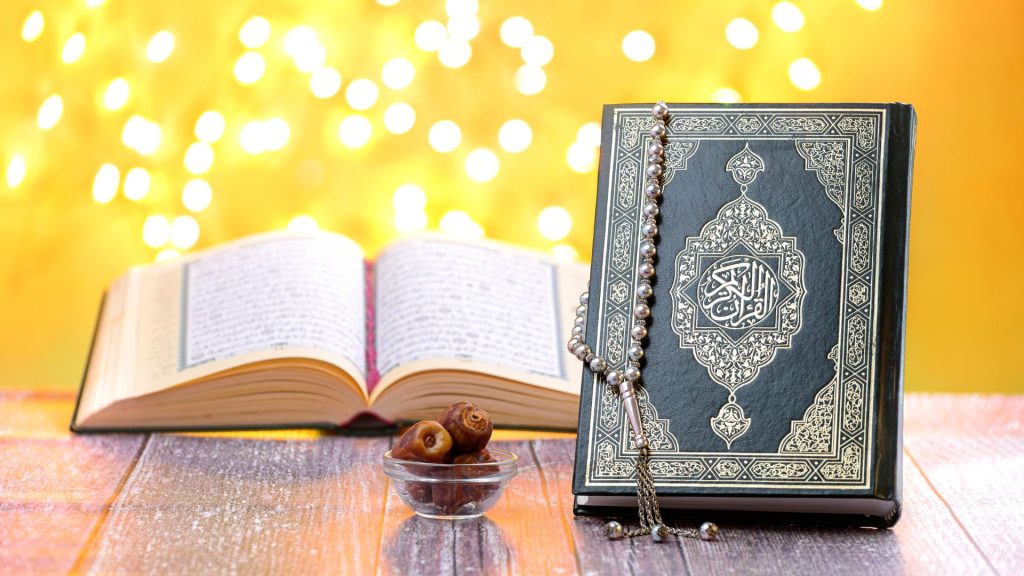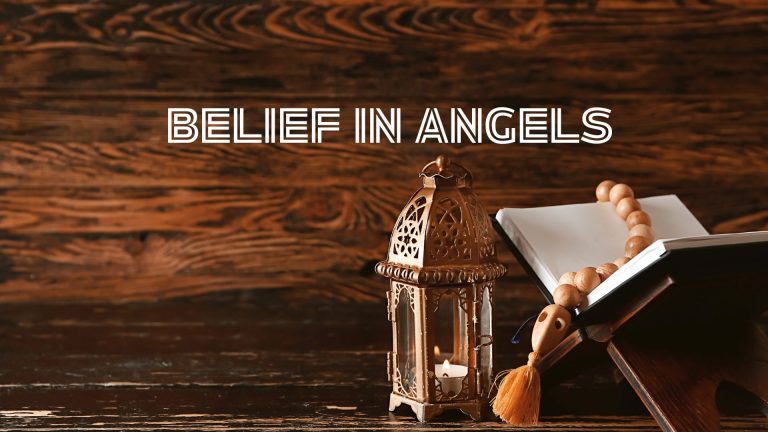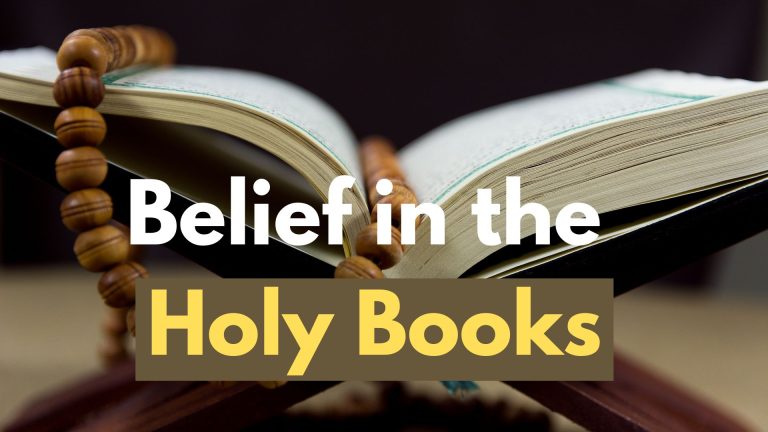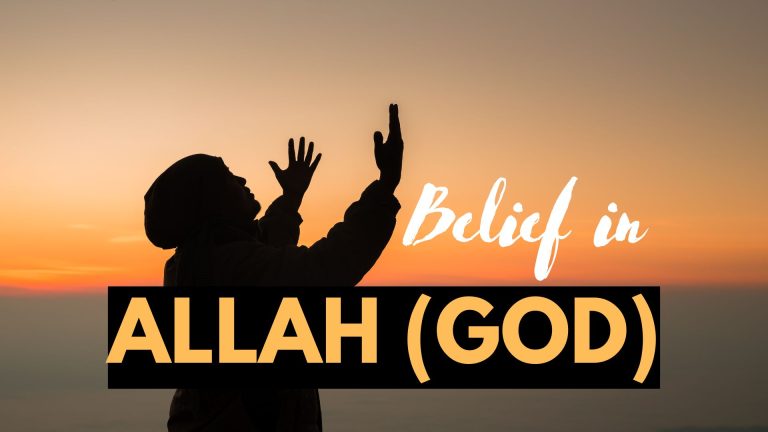Belief in The Messengers of Allah
The belief in Messengers is a core tenet found in many religions, particularly Abrahamic faiths like Islam. It refers to the idea that God, or a higher power, communicates with humanity through chosen individuals. These Messengers are entrusted with receiving divine revelation and conveying it to the people. Their purpose is to guide humanity toward righteous living and warn them of the consequences of straying from the divine path.
Belief in the Messengers entails several vital points:
In simpler terms, it’s about believing in Allah, sending messengers to guide every group of people, accepting the known messengers, trusting their teachings, and following the guidance of the final messenger, Muhammad.

What is Belief in the Messengers?
Belief in the Messengers is the conviction that Allah, the divine, has sent chosen individuals as messengers to various communities throughout history. These messengers were tasked with conveying divine guidance, teachings, and laws to humanity, with the ultimate goal of leading people towards worshiping Allah alone and living righteous lives.
Here are the key points of belief in messengers.
1. Divine Guidance for Every Community
It is firmly held that Allah has appointed a messenger from among the people of every nation, tasked with inviting them to worship Allah alone and to reject all other forms of worship.
These messengers were characterized by their truthfulness, righteousness, wisdom, piety, and honesty. They faithfully conveyed the entirety of the message with which Allah entrusted them without hiding or altering anything. They neither added nor omitted anything from the message, ensuring its integrity and authenticity.
“Are the messengers assigned any duty other than to deliver the Message clearly?” [Quran, Surah Al-Nahl (16:35)]
The message they conveyed, from the earliest to the latest among them, remained consistent. It centered on the principle of Tawhid, emphasizing that all forms of worship must be directed solely to Allah. This encompassed beliefs, expressions, and actions, rejecting anything worship besides Allah.
“We have not sent any messenger before you, [O Muhammad], without revealing to him that there is no deity except Me, so worship Me [alone and none else].” [Quran, Surah Al-Anbiya (21:25)]
“And inquire of [O Muhammad], those We sent before you of Our messengers; did We appoint besides the Most Merciful deities to be worshiped?” [Quran, Surah Al-Zukhruf (43:45)].
Regarding the obligatory acts of worship and the finer details of legislation, prayers, and fasting, they might have been prescribed for some nations. Still, not for others, and certain things may have been forbidden for some while permitted for others, all as tests from Allah.
“He who created death and life to test you [as to] which of you is best in deed.” [Quran, Surah Al-Mulk (67:2)].
The evidence for this is found in the verse:
“To each of you, We prescribed a law and a method.” [Quran, Surah Al-Maidah (5:48)].
Ibn Abbas (PBUH) interpreted it as “a way and a path,” which was similarly understood by Mujahid, Ikrimah, and many commentators.
In Sahih al-Bukhari (3443) and Sahih Muslim (2365), it is reported that Abu Hurayrah said: “The Messenger of Allah (PBUH) said: ‘The prophets are like brothers from one father, their mothers are different, but their religion is one.’” This signifies that while prophets share the principle of Tawhid, their laws regarding commands, prohibitions, permissions, and forbidden acts differ.
Disbelief in the message of one prophet equates to disbelief in all of them, as stated by Allah:
“The people of Nuh (Noah) denied the messengers.” [Quran, Surah Al-Shu’ara (26:105)] Despite only Nuh as a messenger at that time, they were described as disbelieving in all messengers.

2. Belief in Well-Known Messengers
Believing in the messengers whose names are familiar to us, like Muhammad, Ibrahim, Musa, ‘Isa, and Nuh, is a fundamental aspect of faith. For those mentioned in general terms without specific names, believers must accept their existence, as Allah emphasizes in the Quran, the belief in all messengers without discrimination.
The final messenger recognized in Islam is Prophet Muhammad (PBUH), with no prophet to come after him, as stated in the Quran:
“Allah has sent down to you the Book and wisdom and taught you what you did not know. And ever has the favor of Allah upon you been great.” [Quran, 4:113]
In Sahih al-Bukhari and Sahih Muslim, there is a narration by Sa’d ibn Abi Waqqas (PBUH) regarding an incident when the Prophet Muhammad (PBUH) appointed ‘Ali as his deputy during his absence in Tabuk. ‘Ali expressed concern about being left in charge of the vulnerable members of society.
In response, the Prophet reassured ‘Ali, drawing a parallel to the relationship between Harun and Musa, affirming ‘Ali’s significant role, yet clarifying that no prophet would arise after him.
3. Acceptance of Authentic Accounts and Teachings
It is important to accept the authenticity of the reports and teachings attributed to the messengers. These accounts provide valuable insights into divine guidance and wisdom. By embracing these teachings, believers strengthen their faith in the Messengers and their messages.
“O you who have believed, believe in Allah and His Messenger and the Book that He sent down upon His Messenger and the Scripture which He sent down before. And whoever disbelieves in Allah, His angels, His books, His messengers, and the Last Day has certainly gone far astray.” [Quran, 4:136]
It highlights the significance of embracing these teachings as a fundamental aspect of faith.
4. Following the Guidance and Laws of the Final Messenger
Adhering to the laws and judgments established by the Final Prophet, Muhammad (PBUH), who was sent as a messenger to all humanity, is an essential aspect of faith.
As stated in the Quran:
“Indeed, they can have no true faith until they make you, O Muhammad, the arbiter in all disputes among them, and find within themselves no reluctance to accept your decisions, submitting to them completely.” [Quran, 4:65]
How did Signs and Miracles Demonstrate the Authenticity of the Messengers?
Allah aided the messengers with various signs and miracles to validate their authenticity and prophethood. A miracle, known as a mujizah, is an extraordinary occurrence in the physical realm that exceeds human or natural capabilities.
These miracles, performed by the prophets at Allah’s command, serve as credentials to authenticate them as Allah’s true messengers.
Illustrative examples of such miracles include:

What Blessings Granted to Prophet Muhammad as a Messenger?
Allah uniquely favored the Prophet Muhammad, receiving blessings unparalleled by any other prophet. These are:
- Allah commissioned Prophet Muhammad as a messenger to humankind and jinn, a distinction not granted to any preceding prophet sent solely to his own people.
The Quran affirms the unique status of Prophet Muhammad being sent as a messenger to both humankind and jinn in Surah Al-An’am, verse 130:
“O company of jinn and mankind, did there not come to you messengers from among you, relating to you My verses and warning you of the meeting of this Day of yours?” [Quran, 6:130]
- Divine support fortified him against adversaries, instilling fear in the hearts of his enemies within a month’s journey.
- The earth was sanctified as a place of worship and purification for him.
- Permission to partake in war spoils was bestowed upon him, a privilege not granted to preceding prophets.
- He will be endowed with the esteemed position of intercession on the Day of Judgment, a unique honor among prophets.
- These are just a few among the myriad of exceptional favors bestowed upon him by Allah (PBUH).
Muslim Beliefs About Jesus
Muslims hold certain beliefs regarding Jesus:
Jesus will return to Earth before the end of time, rule according to the teachings of Prophet Muhammad, and eventually die a natural death. Like all humans, he will be resurrected on the Day of Judgment.

What is the Significance of our Belief in the Messengers?
Believing in the messengers is crucial because it brings many benefits:
FAQs
Why is belief in messengers important in Islam?
Belief in messengers is vital as it signifies divine guidance and serves as a means for humans to learn about Allah’s mercy, gain knowledge of righteous living, and understand the consequences of straying from the divine path.
Who are considered messengers in Islam?
Messengers in Islam include well-known figures such as Muhammad, Ibrahim, Musa, ‘Isa, and Nuh, among others. Allah chose them to convey His message to humanity.
What distinguishes a messenger from a prophet in Islam?
In Islam, a messenger (Rasul) is a prophet given a new divine revelation of scripture to convey to their community. In contrast, a prophet (Nabi) is sent to reaffirm and follow the teachings of the previous messengers without receiving a new scripture.
Are messengers only sent to specific communities or all of humanity?
While some messengers were sent to specific communities or nations, others, like Prophet Muhammad, were sent to all of humanity. The scope of their message depends on the divine plan and the needs of the people at that time.
Conclusion
Belief in the messengers is a cornerstone of the Islamic faith, serving as a conduit for divine guidance and a testament to Allah’s mercy towards humanity. By accepting the messengers’ teachings, believers gain insight into righteous living and the path to salvation.
Furthermore, embracing the guidance of the final messenger, Muhammad ensures adherence to Allah’s commands and fosters a deeper connection with the divine. Through belief in the messengers, Muslims express gratitude for the invaluable gift of divine guidance and strive to emulate the exemplary lives of these chosen individuals.





